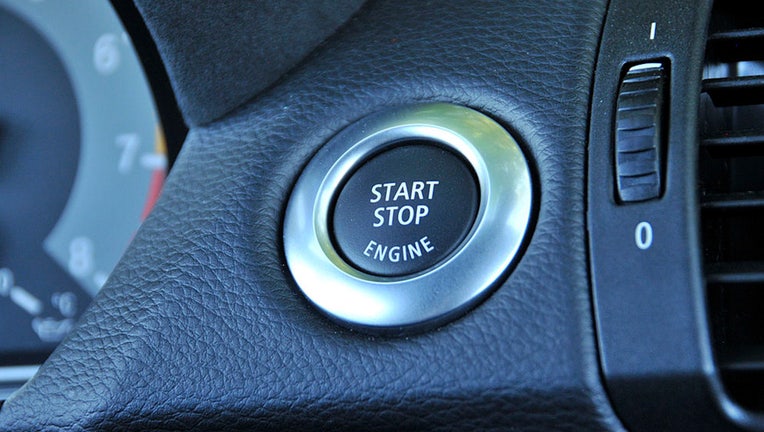EPA chief proposes rollback of automatic red-light car engine stop-start feature

FILE - The start/stop button of the 2011 BMW 1M coupe is seen near Monticello, New York. (Mark Elias/Bloomberg via Getty Images)
Lee Zeldin, the administrator of the Environmental Protection Agency (EPA), proposed rolling back the federal incentives that helped push the automatic start-stop feature in millions of U.S. cars.
"Start/stop technology: where your car dies at every red light so companies get a climate participation trophy. EPA approved it, and everyone hates it, so we’re fixing it," Zeldin wrote on X Monday.
What is auto start-stop?
Dig deeper:
The automatic start-stop feature in a car refers to when the car completely shuts off when stopped at a traffic light or whenever the vehicle is at a complete stop. Once the car starts moving again, the car engine cuts back on.
The point of this tech is to help save on gas and maximize fuel economy.
The backstory:
Automatic start-stop technology in cars has become more popular in the U.S. due largely to fuel economy and emissions regulations put in place by the Obama administration, according to Newsweek.
This feature, however, was introduced by European carmakers in hybrid vehicles over the past decade and has become common in many new car models.
Does it actually save gas?
Whether the automatic start-stop feature saves you money on gas depends on your driving habits.
If you’re driving mainly on the highway where your chances of stopping long enough for your car to shut off are slim, then the automatic start-stop tech is not going to save you much on gas, according to Consumer Reports.
The other side:
If you’re driving mainly on local roads and are getting stopped by traffic lights, stop signs and pedestrians, then you could save anywhere between 7.27% and 26.4% on fuel, according to the Society of Automotive Engineers.
The Source: Information for this article was gathered from reporting by Newsweek, Consumer Reports and a tweet posted by Lee Zeldin, the administrator of the EPA, on May 12, 2025. This story was reported from Los Angeles.

